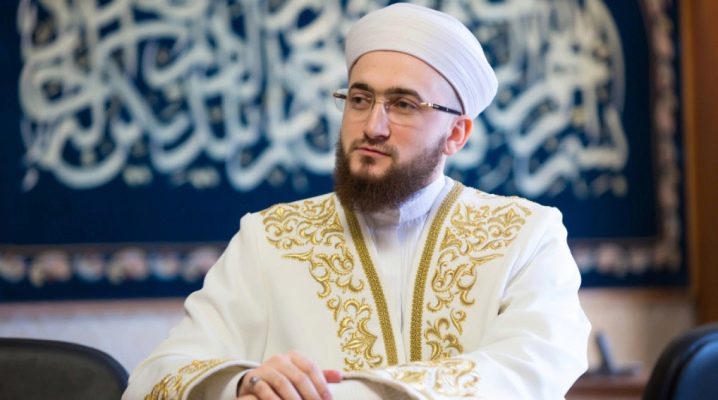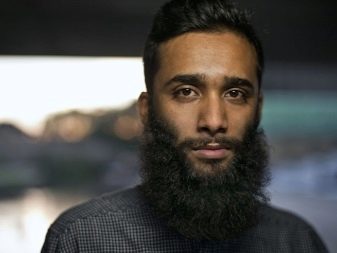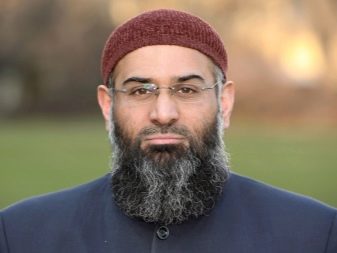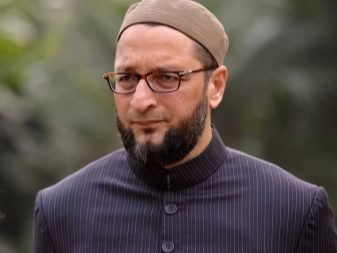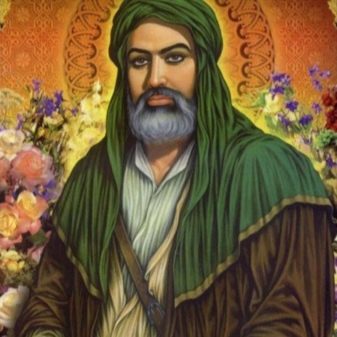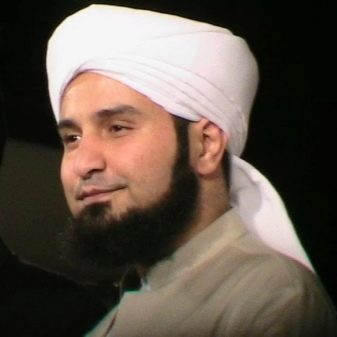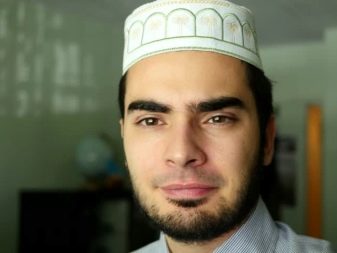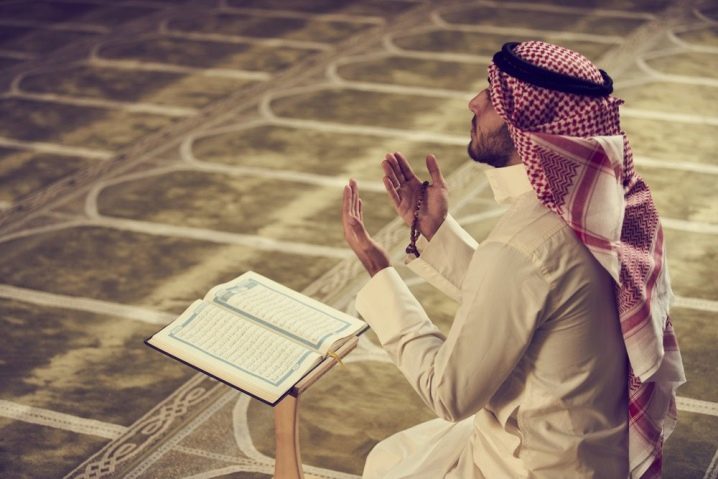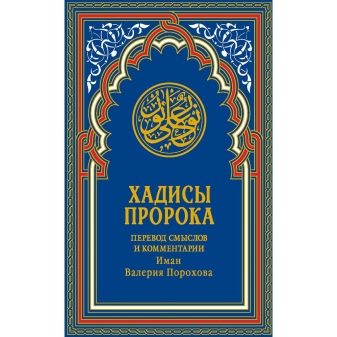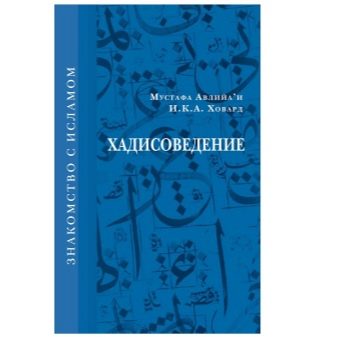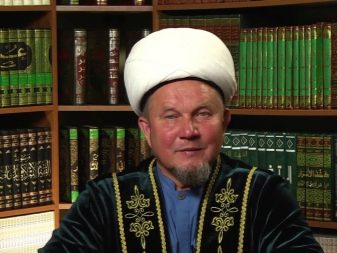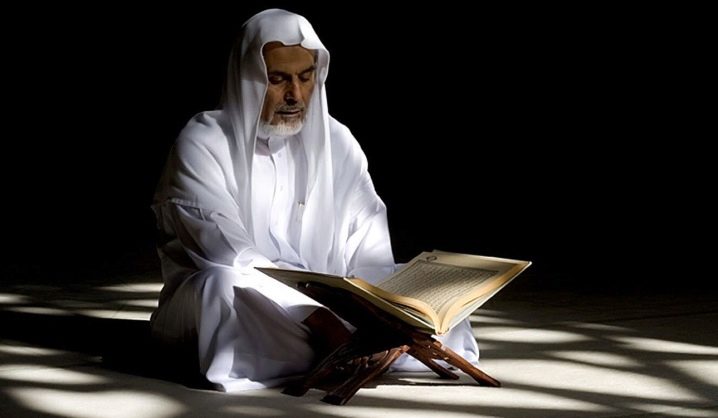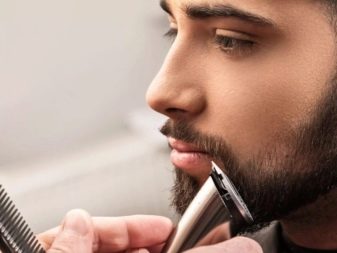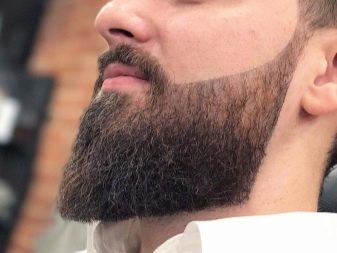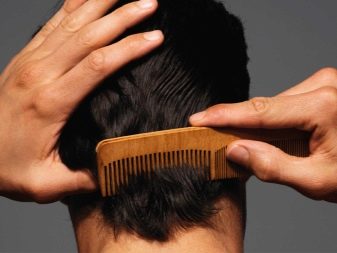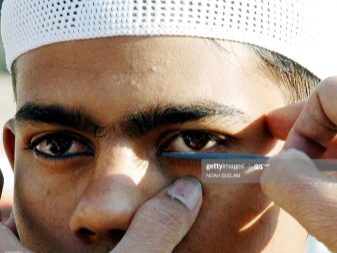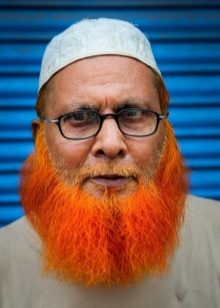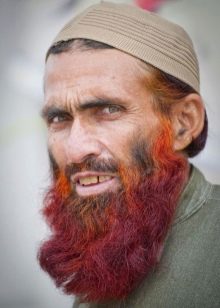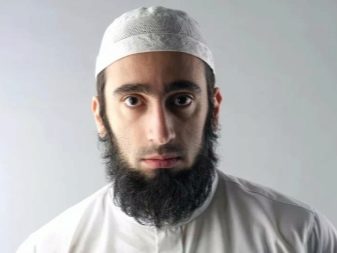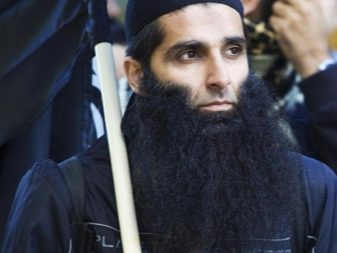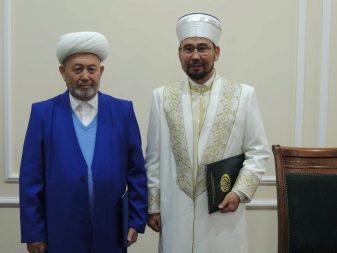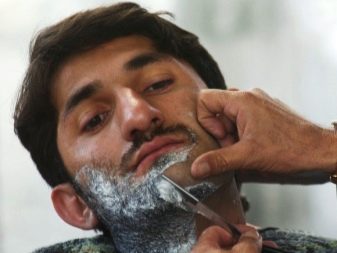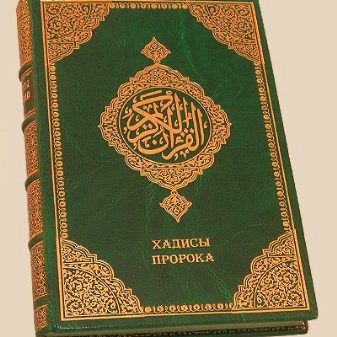What does beard mean in Islam?
Wearing a beard in Islam is often the subject of heated debate among the Qur'anic devotees. The attitude to this attribute of appearance, even among scientists, is diverse and extremely contradictory. As the Sunnah of the Prophet Muhammad, the beard is more of a cultural phenomenon than a religious one. Modernity, cultural and socio-political transformations in the world reinforce the tendency towards unnecessary wearing of a beard among Muslims. The symbolic religious meaning of the beard remains, but does not remain dominant, changing its cultural and traditional significance.
The meaning of the beard in Islam
People's opinion about a man's beard is often polar: someone perceives it as a fashionable attribute, while someone considers wearing it as bad taste. Nevertheless, in any traditional culture, it is a symbol of male identity. A young man with young growth is already perceived differently, more courageous. It is not for nothing that in ancient Russia, shaving off the beard aroused suspicions about belonging to a non-traditional orientation.
A Muslim beard is, first of all, a gift from the Almighty. This is a symbol that, depending on the cultural characteristics of faith and time, contains certain features and religious content.
If you ask a believing Muslim why he wears a beard, then the simplest answer will be a reference to the Prophet Muhammad. However, the topic is not so simple even for Muslims themselves. The question of whether or not wearing a beard is compulsory and still remains controversial. The topic is being discussed among Islamic jurists and theologians, in scientific circles. This controversy is still quite acute to this day. One of its main aspects is the question of what it means for the followers of Islam to wear a beard - fard (obligatory prescription) or sunnah (desirable, recommended tradition), and whether shaving the beard is haram (sin).
The Islamic religion includes many religious movements:
- Sunnis;
- Kharijites;
- murjiits;
- Shiites;
- mutazilites and others.
Each movement has its own set of rules and regulations, which the adepts in their majority try to strictly observe. Therefore, for some Muslims, the removal of the same mustache is a mandatory procedure, for others it is desirable for execution, for others it is prohibited, and others, in general, do at their own discretion. Although some religious authorities believe that shaving a mustache is an act of high service to Allah.
Since ancient times, the beard was considered a symbol of masculinity, and a clean-shaven chin in some religious movements was considered a shameful and disgusting phenomenon. Over time, the public attitude towards this attribute of the male face has changed towards the right of one's own choice. However, in some religions they still continue to adhere to strict rules and norms, which in Islam have many subtleties and nuances.
Many religious leaders have repeatedly emphasized the relevance of wearing a beardbecause the Prophet Muhammad himself did this and ordered his followers to do it. In a number of well-known cases, this provision is considered by the faithful as a mandatory rule.
The features of this attitude towards this symbol of faith in Allah include:
- the possession of precisely well-groomed and neat vegetation;
- inadmissibility of careless attitude to one's appearance;
- a complete ban on wearing an unkempt, dirty beard;
- attitude to growing a beard as a symbol of growing up, becoming masculine, gaining experience, and getting the opportunity to create a family.
In order for believers to better understand the attitude of Islam to various life situations, special hadiths were created - the opinions of the prophet (interpretation), which had to be listened to or simply followed. The hadiths touch on many areas of the life of a faithful person, and they were established only once so as not to be subject to changes or reinterpretations.
Hadith studies have been specially created for their study.
The hadiths contain clear teachings that constitute norms of behavior concerning, for example:
- the importance of maintaining personal hygiene;
- the responsibilities of shaving a mustache and growing the stubble that surrounds the chin;
- the presence of vegetation as the main difference between the faithful and the gentiles;
- compulsory dental care, cleaning the mustache (if any) after eating, cutting them to a certain length.
As reported in the hadiths, Muhammad urged the adepts to cultivate beards and wear them: "Be different from the Gentiles: grow beards and cut mustaches." In other words, in ancient times, the beard was presented as a special sign of believers in Allah.
Violent disputes about the beard have reached such intensity that its presence has become almost the dominant sign of a believer. As some authoritative Islamic experts (ulema) note, the faithful are so fixated on secondary issues of faith that they miss the topic of the basic laws of the Most High. Clashes of opinion arise not only about wearing a beard, but also about its size, color and shape. Most of the ulema believe that it is necessary to wear a beard, but there are differences in the degree to which such wearing is obligatory.
The opinion about the permissibility of shaving a beard is held by a minority, which the same majority calls "unfaithful", "lost", "tagutchiks" and so on.
Whether wearing a beard is canonical depends on the characteristics of the 4 main schools of Sharia. For example:
- in accordance with the Hanafi madhhab, it is undesirable to get rid of the beard (close to a ban);
- the followers of the Hanbali and Maliki madhhab are prohibited from doing this;
- in accordance with the Shafi'i madhhab - undesirable (but not prohibited).
Actually in the Koran there is no direct mention of the prohibition of shaving off the beard and mustache. Strictly speaking, the question is left to the discretion of the believers. But there are attempts to indirectly confirm the need to wear them.
The authoritative imam of one of the teachings (madhhab) Abu Hanifa presented the Sunnah in two forms:
- sunna manduba (mustahabba, non-canonical form);
- sunna wajiba (canonical form).
Regarding the second, it is said: "Let those who do not follow His orders take care, so that they do not overtake them or suffer a heavy punishment!" (Quran, 24: 63).
The recommended length of the beard is no more than a man's fist, and it should be shaved in rare cases, for example, in case of illness, if this will contribute to a complete cure.
Painting it with natural substances is permissible.
Thus, among the faithful, the issue of the beard is now acute, especially between the older and younger generations. The situation is aggravated by the fact that such vegetation has come to be associated with radicalism and extremism, since most of the fighting in the East grow long vegetation. A neat, medium-sized beard can be a possible compromise in this situation.
In fairness, it should be noted that shaving off the hair on the face - it means to change the appearance given to a person by Allah as a result of birth. And it is quite logical that this gifted appearance should be unswervingly accepted as a divine gift, showing care and attention for it. It follows that wearing a well-groomed and tidy beard is the best proof of a reverent attitude towards a gift.
In general, the faithful attach great importance to aspects of hygiene. It is believed that the pursuit of cleanliness distinguishes a Muslim from an unbeliever. In some hadiths, the frequency of washing per day and the procedure for hair care are clearly prescribed.For example: "Ten things are attributed to fitra: trimming a mustache, wearing a beard, using a siwak, rinsing the nose with water, trimming nails, washing finger joints, plucking hair in the armpits, shaving in the groin and washing".
The basic rules of hygiene for Muslims include:
- daily combing of hair, periodic cutting when it grows to the shoulders;
- the possibility of dyeing the hair on the head and stubble, especially when it begins to turn gray;
- the ability to draw the eyes with the help of antimony (today it is practically not performed);
- mandatory rinsing of the mouth after eating garlic, onions.
What should it be?
The hadith emphasize the need for regular haircuts to keep them in length, width and tidy. Wherein wearing a beard without a mustache is permissible - the solution to this issue in most currents is given to the faithful. The main aspects are cleanliness, neatness and tidiness. The optimal beard length is considered to be the size of a clenched fist. Although in some Islamic teachings, the beard is released to its natural growth.
Muslims are allowed to dye their beards by Muhammad himself, who recommended that adherents perform dyeing procedures, choosing shades of red and yellow. It is likely that such recommendations are necessary to create a clear distinction between Islamists and Jews and Christians. The use of a black shade when painting is prohibited.
This shade is used by adherents of jihad.
It is noteworthy that there are many countries where Islam dominates, but the faithful are allowed to live in society without a beard. So, in Turkey, wearing a beard is interpreted as a sunnah for mature men, but civil servants are required to be clean-shaven at work.
A similar picture is observed in Lebanon, where wearing a beard does not necessarily mean that a person belongs to the Islamic faith. Rather, on the contrary, it stimulates a certain attention to it from the side of law enforcement agencies.
Often, disputes between believers are resolved by Sharia rules through examination:
- for the presence of bristles;
- about the size of the hair;
- to establish true orthodoxy.
Persons who did not pass such an examination were subjected to various persecutions and insults. In countries where power is controlled by the Taliban, the death penalty was imposed for the absence of a beard.
Why is the mustache shaved off?
The mustache also plays an important role in this context, but opinions are divided here too. Supporters of a number of teachings believe that the mustache must be shaved off completely. Others believe that they should be shaved only partially, leaving in the part that does not extend beyond the edge of the upper lip. This is because crumbs of food falling on the mustache pollute the process, being a sinful act (haram).
And here Imam Malik, a supporter of the Maliki madhhab, generally believed that it is impossible to completely shave off the mustache - this is an innovation, and believers who follow this rule must be "beaten". It got to the point that it was forbidden to take testimony from such persons - a kind of defeat in rights.
The early Hanafis believed that shortening the whiskers meant their complete eradication, but later in the teachings of the Hanafis, partial shortening of them was allowed.
Tradition today
In the post-Soviet regions, the situation from the point of view of the official religious attitude regarding the beard was formed in different ways. In Kazakhstan, the clergy was a supporter of the Sunnah (optional wearing). Shaving was considered sinful by the Salafis.
In Uzbekistan, there are no specific legal grounds prohibiting beards, but bearded men cause a natural sense of alertness on the part of the environment and police officers.
Often, the imams of mosques simply shaved off the vegetation, fearing to be included in a special "black list" of supervisory services.
In fact, there are many incidents of unofficial prohibitions on growing a beard rooted in law enforcement practice in the fight against extremists. In the course of the search for criminal elements, the presence of a beard often became the reason for prosecution and arrest. Sometimes, even during the issuance of passports, the bearded men had to issue special certificates from the clergy departments of the region, confirming that the person was not a member of any extremist group. It was not easy to obtain such a document.
In the current regions of Russia, where Muslims also live, the situation is different. For example, in the Karachay-Cherkess region, the Council of Ulema issued a decree declaring wearing a beard wajib (in accordance with the Hanafi madhhab) - the stronger sex was obliged to grow beards "minimal, within the limits of visibility (with the prohibition of shaving with a blade)."
In Tyumen, the imam-mukhtasib determined that for the Tatars a beard is not a common traditional symbol, and the right to wear it must be "earned": after the wedding, a believer can grow a beard, but after 60 years he can grow any length and density.
According to the imam of the Memorial Mosque (Moscow), who revealed it in his publication, beards "are absolutely not a fard" (duty), and those who believe that it is a fard demonstrate their illiteracy. In this judgment, the imam relies on the authority of the Egyptian ulama.
Separate incidents, when the presence of a beard becomes the basis for enrolling a believer in police databases, are observed in Dagestan. We are talking about "preventive counts" where suspects of extremist views are placed.
It should still be remembered that hadith should not be understood as a source of faith... For nearly 1,500 years they have been ruled, distorted, misinterpreted and invented. Now they mostly relate specifically to culture and traditions, while their religious aspect is more likely to relate to the source - the Koran.
For more on the meaning of the beard in Islam, see the following video.
